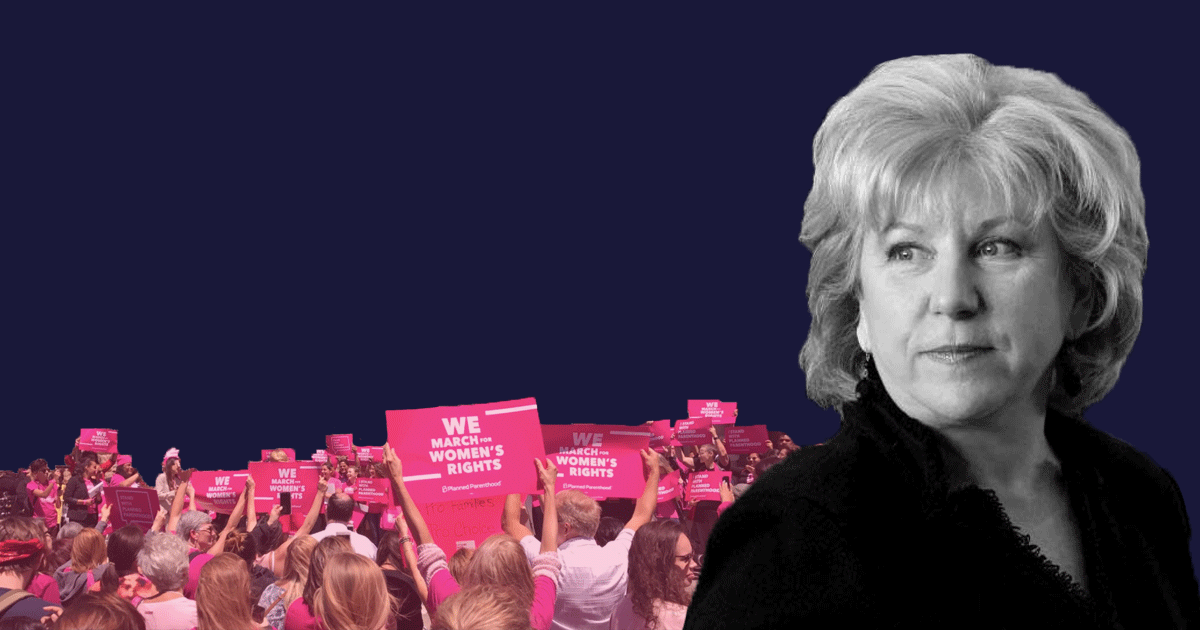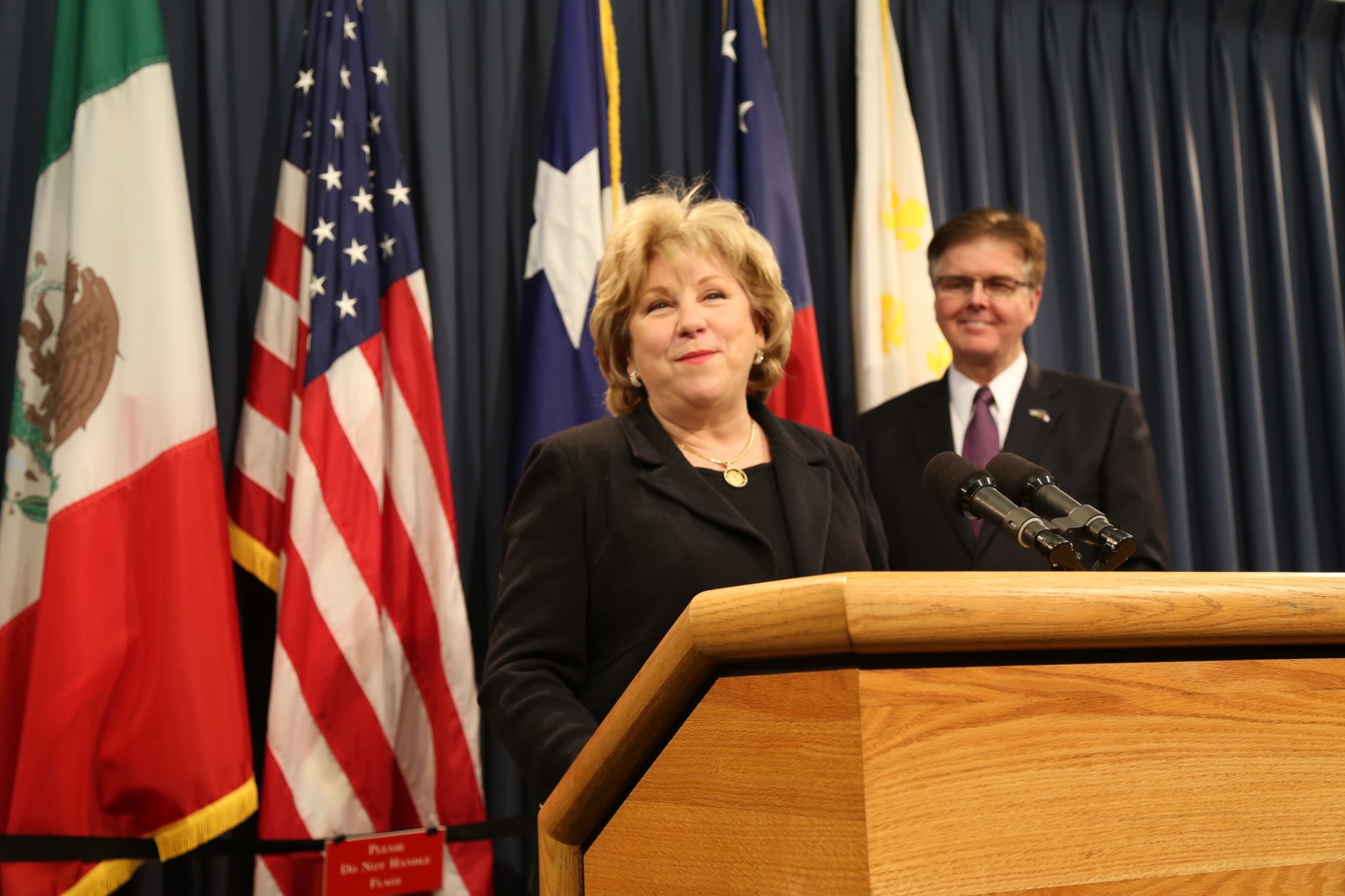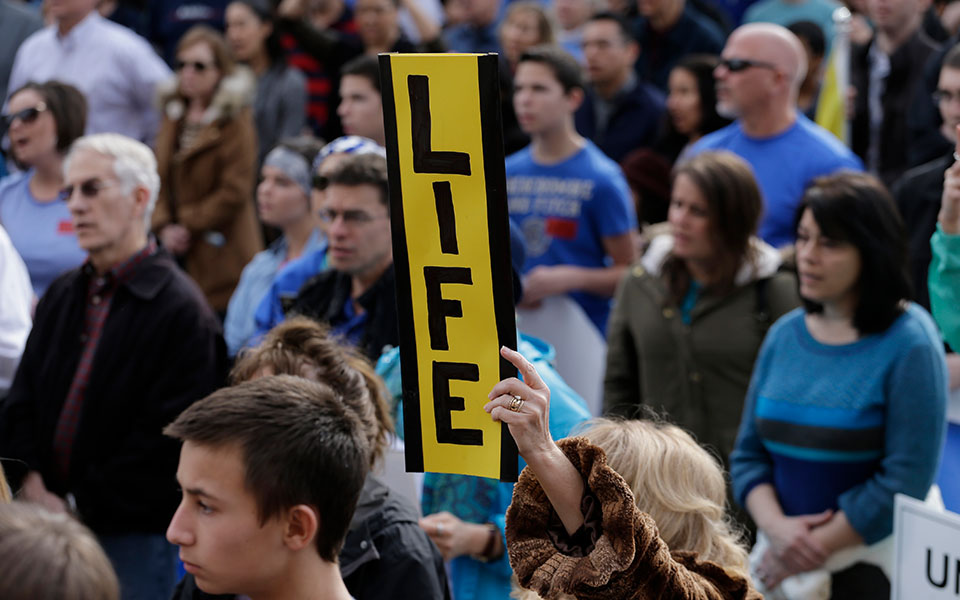
Texas Republicans Dismiss Research as They Move to Further Defund Planned Parenthood
Jane Nelson, the Senate’s chief budget writer, praised the Legislature’s funding of women’s health programs despite state data and other research that shows they are not meeting the needs of poor women.

Reproductive health advocates have long pointed to Texas as a cautionary tale of what happens when lawmakers prioritize defunding Planned Parenthood and boosting anti-abortion organizations over ensuring access to care. In 2011, Texas lawmakers slashed the family planning budget by two-thirds. Two years later, they kicked Planned Parenthood out of the state’s women’s health program. The results have been stark: Tens of thousands of poor Texans lost access to care, more than 80 family planning clinics closed and the state scrambled to create a replacement network of providers that its own data shows hasn’t been able to fill in the gap.
Yet Republican state senators flatly denied these impacts on Monday while offering support for a new bill that further limits funds for Planned Parenthood. Instead, some GOP members of the Senate Committee on State Affairs said that the state’s women’s health network is more robust than ever, and data showing otherwise is simply “not accurate.”
“This Legislature has invested more money in women’s health to provide more services to more women than we ever have in the history of this state, and we have more providers than we ever had,” said state Senator Jane Nelson, a Flower Mound Republican who has served as the upper chamber’s top budget writer for the last three sessions. That “it’s not flowing through an organization that some people would prefer is their problem,” she said of cutting funds to Planned Parenthood. “My problem — our problem — is making sure women get the appropriate health care that they need. And we are doing that.”

The state’s own data contradicts Nelson’s claims. Experts say it still appears that fewer women are being served now than in 2010. That’s despite a 30 percent increase in patients served from 2016 to 2017, and a major boost in family planning funding since the 2011 cuts. Though state leaders boast about the overall number of providers in its replacement network, the Healthy Texas Women program, the Observer found that nearly half of the approximately 5,400 providers didn’t see a single patient in the program in 2017. The list is inflated with labs and providers that don’t appear be affiliated with women’s health, including podiatrists and optometrists. Meanwhile, it’s estimated that less than a quarter of women in Texas who need publicly funded contraception are getting those services.
Nelson’s comments were in response to testimony from Joseph Potter, a University of Texas at Austin professor who since 2011 has been studying the impact of the Legislature’s cuts to women’s health care through the Texas Policy Evaluation Project. According to Potter’s research, the women’s health safety net never recovered after lawmakers cratered the family planning budget and kicked out Planned Parenthood. “Neither of these measures seemed to anticipate the long-term effects of removing skilled providers from a safety net that took decades to build,” Potter testified. He cited new research, building on a 2017 study, which he said shows a “substantial difference” in reproductive health care and contraception options offered by primary care providers prioritized by the state, versus dedicated family planning clinics that have been shuttered or excluded.
Meanwhile, lawmakers have poured state money into marketing and expanding the Healthy Texas Women program, while leaving millions in federal funds on the table in order to exclude Planned Parenthood. In a high-profile failure this winter, the state ended its multimillion-dollar contracts with the controversial anti-abortion Heidi Group, which it had tapped to replace Planned Parenthood. We first reported in September that the Heidi Group served just 3,300 of the 70,000 patients it pledged to in 2017. That’s far fewer than the more than 40,000 per year who were treated at Planned Parenthood. According to documents obtained by the Houston Chronicle, Nelson initially backed Carol Everett, Heidi Group’s founder, to be on a state women’s health advisory board, which Nelson has denied.

Potter says it is important that lawmakers have invested millions back into family planning and enrolled new providers. “But still, there’s a gap between the demand for [contraceptive] methods and the current supply,” he told the Observer, one the proposed bill would likely exacerbate. “The idea that you can just contract anyone to provide family planning services is flawed. … I was just pointing out that experience matters.”
Nelson and other Republican senators questioned how Potter’s work was funded and seemed to dismiss the UT program that’s been tracking women’s health in Texas for the last eight years. “It really distresses me that the professor of a state-run university has some study that you’re doing that would indicate otherwise, but that’s just not true,” Nelson said of the idea that women aren’t getting the care they need. Her office said she was not available to respond to follow-up questions from the Observer, but pointed to a 2016 letter the senator wrote to the Health and Human Services Commission. In the letter, Nelson made similar arguments as in the hearing regarding women’s health funding and requested a review of a report from the Texas Policy Evaluation Project and specific findings that she wrote are “simply not true.”
At the hearing, Nelson and all six other committee members voted to advance the anti-Planned Parenthood bill, which would ban “taxpayer resource transactions” between local governments and abortion providers or affiliates. While taxpayer funds are already prohibited from covering abortions, and Texas has already limited state funds to the organization, the proposal would prevent local entities from partnering with, leasing property to or otherwise working with Planned Parenthood. Reproductive health advocates say the measure could have sweeping impacts on public health, blocking services including HIV testing and outreach, Zika prevention kits and sex education programs.


